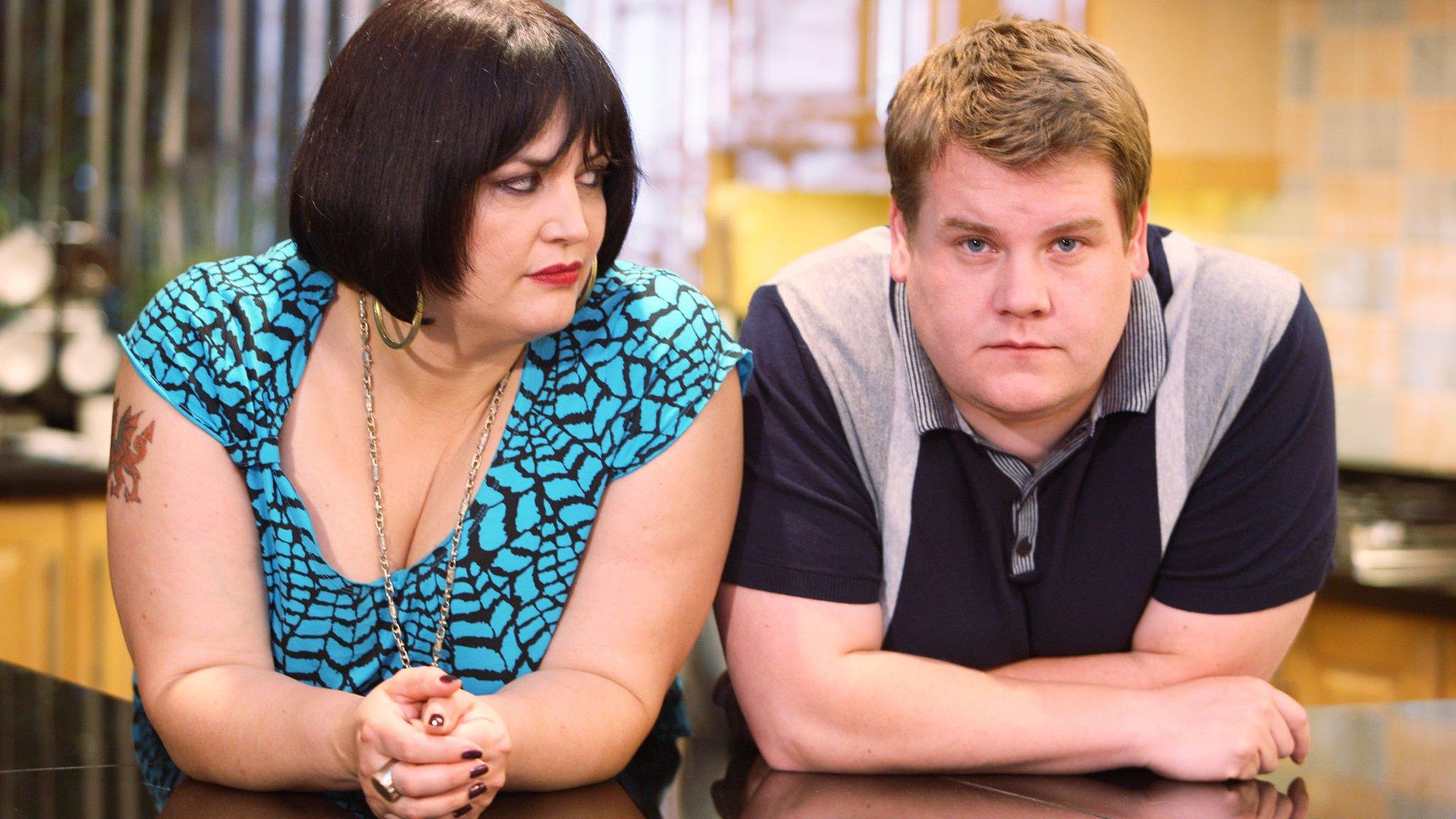BBC Three will return to TV screens after six-year break
- Published
- comments
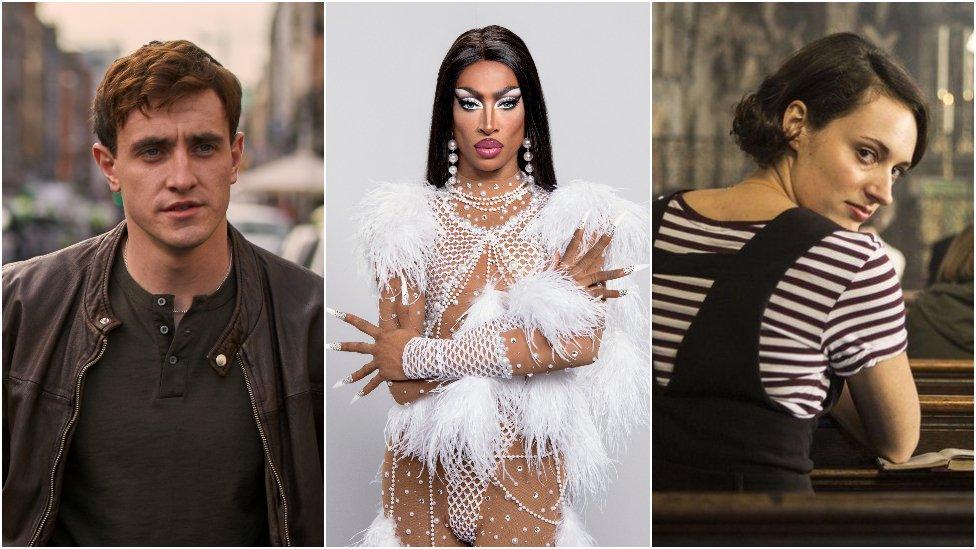
BBC Three is set to return as a TV channel
BBC Three will return as a fully-fledged TV channel in January 2022, six years after it moved online.
The channel has since been responsible for major hits including Fleabag, Normal People and Killing Eve - prompting calls for its resurrection.
Last year, BBC research concluded there was a "strong case" for it to come back as a regular TV channel, focusing on younger audiences.
MP Julian Knight said the move showed the BBC had "failed" those viewers.
"I question whether putting the clock back five years is the right way to win over 18-35s," said Mr Knight, who chairs the select committee for the department for digital, culture, media and sport (DCMS).
CBBC will close early
"The BBC needs to back success and make sure its programmes reach as many young people as possible wherever they live in the UK," said the BBC's chief content officer, Charlotte Moore.
"So regardless of the debates about the past, we want to give BBC Three its own broadcast channel again."
As announced in the BBC's Annual Plan last year, the channel's budget will also be doubled over the next two years - a decision that was also criticised by Mr Knight, who accused the BBC of putting extra investment into programmes while "those over 75 are being chased to pay up for their TV licences".
The BBC ended the provision of free TV licences for most over-75s last year, after the government decided to stop paying for the benefit.
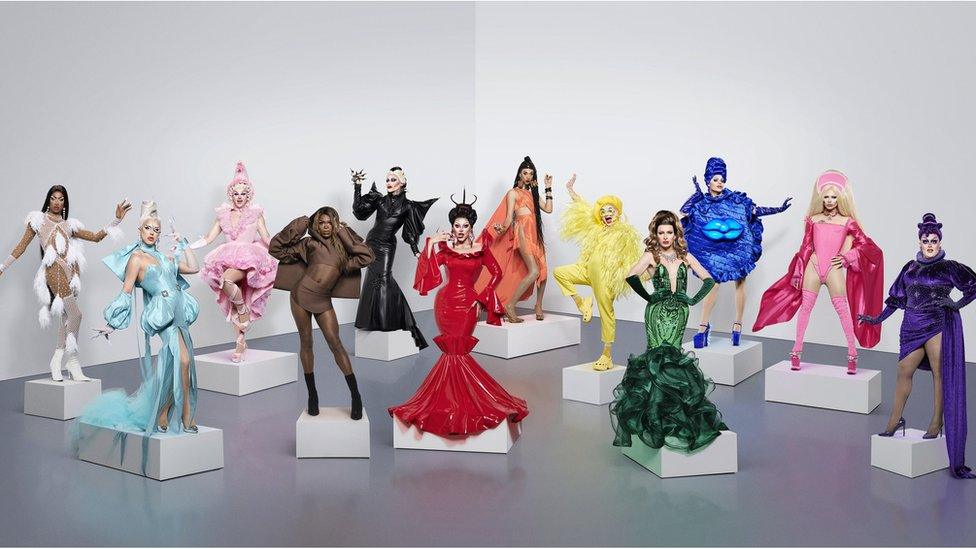
RuPaul's Drag Race UK, currently in its second season, has proved a runaway success
When it returns, BBC Three will be targeted at audiences aged 16-34, broadcasting from 19:00 to 04:00 each day.
As a result, CBBC's broadcast hours will revert to closing at 19:00 - as was the case before 2016. It currently runs until 21:00.
The move will still need approval from media regulator Ofcom before it can go ahead.


Seven years ago the BBC announced that BBC Three would become digital only. The main reason given was the need to save money. The public narrative was: Young audiences congregate online rather than watch linear TV, so there's no point providing a linear service.
Since then, three things have happened. The flight of young audiences to digital platforms, and away from scheduled TV, has accelerated. BBC Three has produced a big range of huge, global hits. And the pressure on the BBC, not least from Ofcom, to prove that it still appeals to young people has grown sharply.
This last point is critical. The BBC commissioned research showing that there is still a market of young people - albeit smaller than years ago - on linear platforms. Given the success of the shows commissioned by BBC Three, the feeling at the top of the organisation was that putting them back on a linear platform would create upside in terms of audience numbers, for relatively low cost.
Despite the need for more savings today, that cost can be justified because when the BBC negotiates with the government over the future of the licence fee, it needs the strongest possible argument on its relevance and universal appeal.

BBC Three was originally taken off air in March 2016. The corporation said the move would save £30m a year, helping it to reduce its spending after cuts imposed by the government in 2010.
Much of the budget was reallocated to fund drama on BBC One, while BBC Three was expected to target younger audiences online.
'Real potential'
But the plans caused controversy, prompting the Save BBC Three campaign which saw more than 300,000 people sign a petition to keep it on air.
Journalist and founder of the campaign Jono Read said the channel's return was "great news".
"It became clear that the decision to to take it off air was a counter-productive move that bosses had taken to sacrifice the station under the guise of budget cuts, and one that was deeply unpopular with its audience.
"Nonetheless the online move has shown real potential for BBC Three and I think it will thrive when it is once again given the chance to combine traditional and new media when it returns to TV in 2022", he says.
Many of BBC Three's commissions have ended up on linear TV, with shows like Killing Eve and Fleabag attracting huge audiences on BBC One.
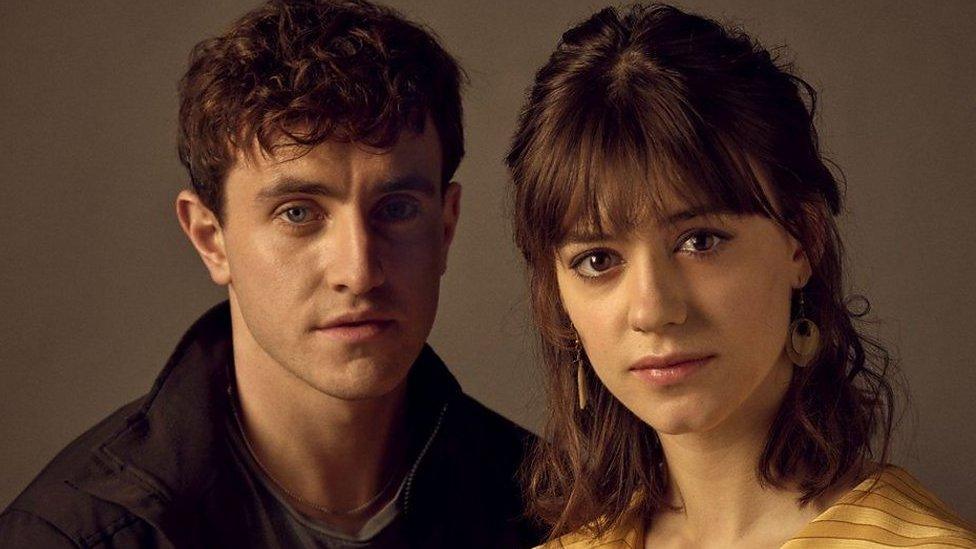
Paul Mescal and Daisy Edgar-Jones in BBC Three's Normal People
Normal People, about the tangled love lives of two Irish teenagers, also became the breakout hit of the first lockdown. It was requested on the BBC iPlayer 62.7 million times last year, more than any other programme.
Other hit shows on the channel include Man Like Mobeen, This Country, Ru Paul's Drag Race UK and the Jesy Nelson documentary Odd One Out.
In its online incarnation, BBC Three has won a raft of awards, including RTS Channel of the Year in 2017 and Digital Channel of the Year 2019 at the Edinburgh TV Festival. It is currently Broadcast Digital Channel of the Year.

Follow us on Facebook, external, or on Twitter @BBCNewsEnts, external. If you have a story suggestion email entertainment.news@bbc.co.uk, external.
Related topics
- Published19 May 2020
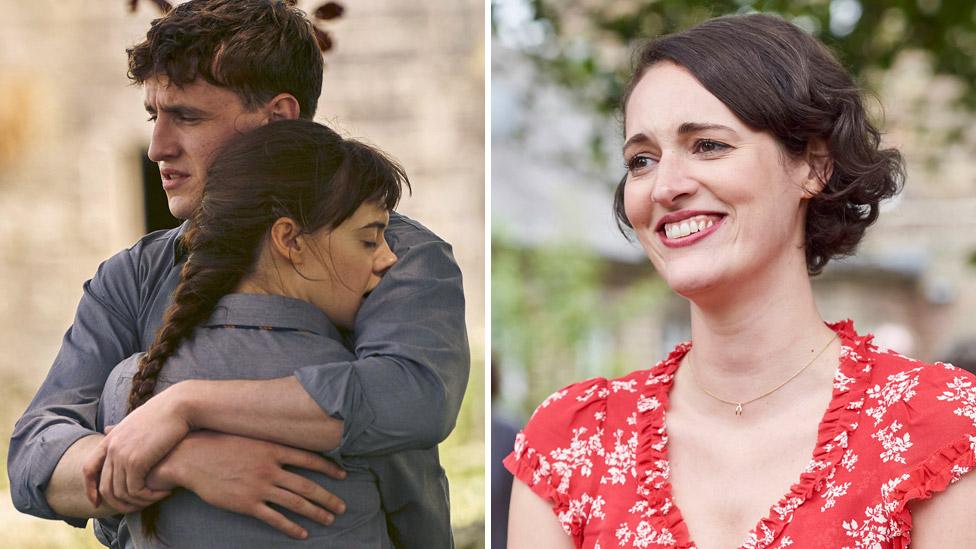
- Published16 February 2016
